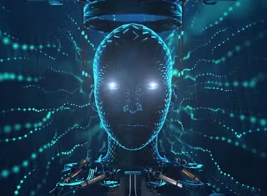Technology and Artificial Intelligence (AI) are poised to revolutionize the future in profound ways, impacting various aspects of our lives, society, and industries. Here are some key ways in which technology and AI are expected to change the future:
- Automation and Efficiency: AI and automation technologies are set to streamline processes, enhance efficiency, and reduce manual labor in various sectors, from manufacturing and transportation to healthcare and finance. By automating repetitive tasks, AI can free up human resources to focus on more complex or creative endeavors, leading to increased productivity and innovation.
- Personalized Experiences: Advancements in AI-driven algorithms and data analytics enable personalized experiences in fields like healthcare, education, e-commerce, and entertainment. Personalized recommendations, tailored services, and custom solutions based on individual preferences and behaviors are becoming more common, enhancing user satisfaction and engagement.
- Healthcare and Medicine: AI is transforming the healthcare industry, from disease diagnosis and treatment planning to personalized medicine and drug discovery. AI-powered tools can analyze vast amounts of medical data, identify patterns, predict outcomes, and assist healthcare professionals in making more accurate diagnoses and treatment decisions, ultimately improving patient care and outcomes.
- Smart Cities and Infrastructure: The integration of AI and IoT technologies is driving the development of smart cities with interconnected systems that optimize energy consumption, traffic flow, waste management, and public services. Smart infrastructure, including smart grids, smart transportation, and smart buildings, is expected to enhance sustainability, efficiency, and quality of life in urban environments.
- Environmental Sustainability: Technology and AI solutions are playing a crucial role in addressing environmental challenges, such as climate change, pollution, and resource conservation. AI-powered models can analyze environmental data, optimize energy usage, predict weather patterns, and help in biodiversity conservation efforts, contributing to a more sustainable and eco-friendly future.
- Enhanced Customer Service: AI-driven chatbots, virtual assistants, and customer service automation tools are revolutionizing the way businesses interact with customers. These technologies enable 24/7 support, personalized recommendations, and efficient responses to customer inquiries, resulting in improved customer satisfaction, loyalty, and operational efficiency.
- Ethical and Security Considerations: As AI becomes more pervasive in various domains, the ethical and security implications of its use are coming into focus. Ensuring transparency, accountability, data privacy, and ethical AI governance are critical to building trust in AI systems and safeguarding against potential biases, misuse, or security threats that may arise.
- Job Disruption and Reskilling: The widespread adoption of AI and automation technologies is expected to disrupt traditional job roles and industries, leading to workforce changes and the need for upskilling and reskilling. As certain tasks become automated, new job opportunities in AI development, data science, cybersecurity, and other technology-related fields are emerging, calling for a shift towards a more tech-savvy and adaptable workforce.
The future landscape shaped by technology and AI holds immense potential for innovation, progress, and transformation across various sectors. Embracing the opportunities presented by technological advancements while addressing the associated challenges will be essential in harnessing the power of technology and AI for a more efficient, connected, sustainable, and inclusive future.
